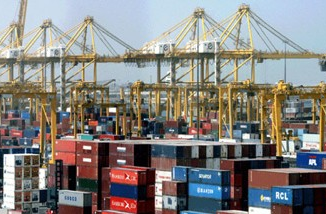
The controversial N30,000 minimum wage has finally been approved by lawmakers, thus ending the protracted labour battle. But paying the new wage presents a fresh challenge. In order to be able to pay the increased wage bill, the federal government is contemplating increasing VAT by as much as 50%, up from 5%. This astronomical increase or any increase at all, if made, is capable of wiping out every gain of the salary increase for the average worker.
The Value Added Tax (VAT) is a consumption or indirect tax. For the average worker and ordinary Nigerians that have to pay utility bills like electricity bill, and buy consumer goods, 50% VAT increase will be a bitter pill to swallow. Apart from sparking a hike in the price of commodities, a 50% increase in VAT will surely push inflation rate to a whole new level, thereby diminishing the purchasing power of workers. Generally, the VAT increase will irrefutably set the tone of poverty and unprecedented suffering for the common man.
But are there other ways of increasing government revenue to absorb the new salary bill, without giving with the right hand and taking it back with the left hand? The answer is a positive yes. There are many neglected areas of the economy the government can harness and make a revenue fortune to absorb the increase in wage bill and still have enough to spare.
For instance, the nation’s maritime sector is a neglected goldmine. The government can make a fortune from the sector if it is properly harnessed. Over the years, the various past administrations have not really bothered about the hue and cry of foreign domination of shipping in the country and its attendant capital flight.
Available figures indicate that about 98 percent of sea freight in Nigeria is handled by foreign shipping companies. To those who know the value of the maritime sector, this is a colossal loss to the nation.
Sometime last year, renowned maritime lawyer, Olisa Agbakoba, decried the huge revenue losses in the industry, declaring that if all the potentials in the industry were harnessed, it could generate more than N7 trillion per year. Many maritime experts have also said that the Nigerian maritime industry can single-handedly fund the national budget if properly harnessed. Even government functionaries are not left out in extolling the importance of the sector, as they have on several occasions acknowledged its immense potentials, while bemoaning the huge revenue losses in the sector.
In 2012 during a Maritime Sector Presidential Retreat, Nigeria’s former Minister of Finance, Dr. Ngozi Okonjo-Iweala lamented that the country was losing over ₦2 trillion annually in capital flight to foreign countries as a result of the non-participation of indigenous ship owners in lifting of the nation’s import and export cargoes, including crude oil exports. Similarly, the Director-General of the Nigerian Maritime Administration and Safety Agency (NIMASA), Dr. Dakuku Peterside, while presenting the agency’s 2019 forecast for the maritime industry last February acknowledged that the maritime sector remains a pivot to the stability and growth of the economy. He maintained that there was need to provide guidance to industry players as it will attract more foreign direct investment and ultimately improve the nation’s Gross Domestic Product (GDP).
Unfortunately, all these acknowledgements by government officials have not led to any positive attitude to, and drastic policies and actions in favour of the maritime industry. In 2014, the then Minister of Petroleum, Mrs. Diezani Alison-Madueke announced that 60 percent of that year’s oil lifting contracts had been awarded to shipping companies owned by Nigerians to encourage local participation in the oil and gas sector of the economy. But this turned out to be a mere statement, not backed by any concrete action. Nigerian ship owners, after futile efforts to meet the minister for clarifications and modalities described the pronouncement as a game of deception.
If the country can retain the freight component of its crude oil exports, empower indigenous shipping operators to control the nation’s cabotage trade, and curtail the huge capital flight from the industry, the Federal Government will collect more than enough revenue to sustain its annual budget. This can only be achieved through proper regulation of the sector, good and sincere policy implementation, legislation and financing.
Instead of increasing VAT to pay the new minimum wage, government should empower Nigerian ship owners and other local operators and see how much it will reap from income tax generation aloone. The economies of Greece and The Philippines bear eloquent testimony of the impact a well-organized maritime sector can make on a nation’s economy. Nigeria can borrow leaf from them.
Copyright Ships & Ports Ltd. Permission to use quotations from this article is granted subject to appropriate credit given to www.shipsandports.com.ng as the source.